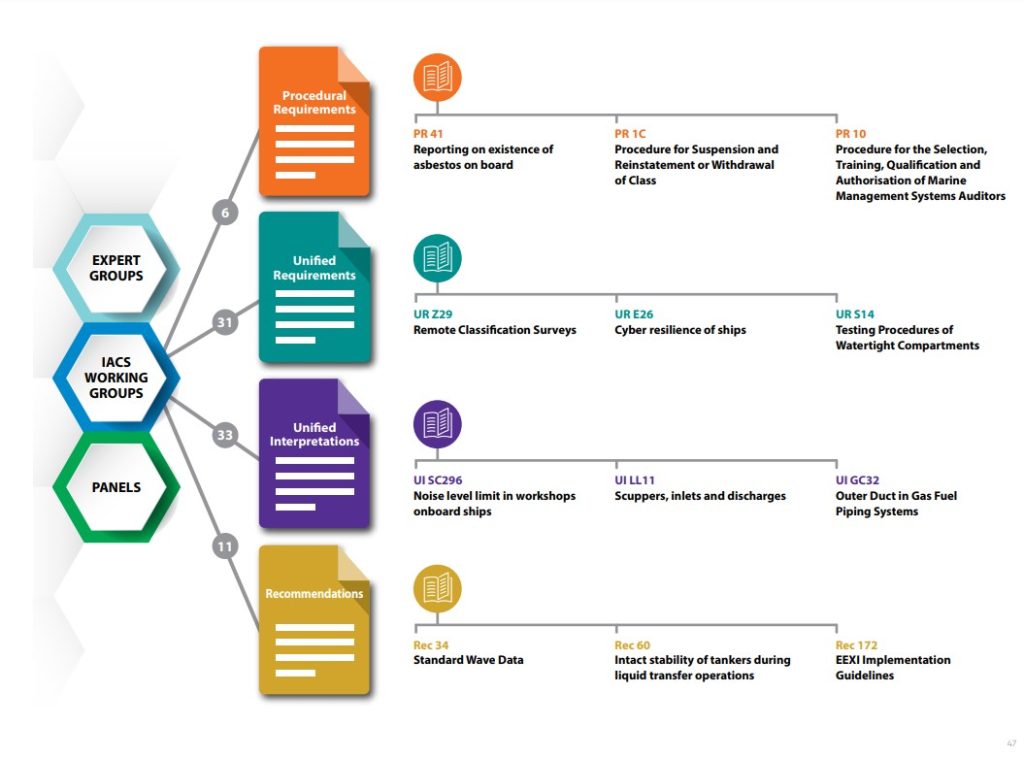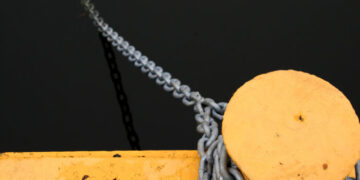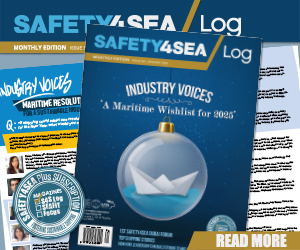IACS (International Association of Classification Societies) published its 2022 Annual Review which includes a broad range of articles on IACS’ work in 2022, with a strong emphasis on quality performance.
Striving for better quality improves efficiency, reputation and status, among other things. Decarbonization, safety and digitalization are three main pillars on which shipping has been trying to improve its quality standards, thus improving business, the environment and the lives of affected parties. Improved quality standards brings more opportunities from other parties striving for quality, which in turn improves quantity as well.
Why is Quality so important to IACS?
The entry into force of the IMO Member State Audit Scheme in January 2016 (SOLAS Chapter XIII, MSC.366(93)), adoption of the IMO Instruments Implementation Code (III Code, A.1070(28)) and the Code for Recognized Organizations (RO Code, MSC.349(92), MEPC.237(65)) clearly demonstrate how critically important the shipping industry as a whole, views Quality in realising high standards for safety, pollution prevention and operational aspects of ships. IACS has discussed its suggestions with IMO many times, including MSC 106 and, more recently, SSE 9.
What quality means to IACS
‘Quality Performance’ as described in IACS’ Vision & Mission is the commitment of IACS Members to define and adhere to the highest global quality standards, through rigorous application of the IACS Quality System Certification Scheme (QSCS) and through actual performance proven by appropriate key performance indicators. IACS’ unique approach to, and implementation of, quality is supported by this mission and is vital to IACS’ and its Members’ contribution to maritime safety and environmental protection. This mission is achieved by:
- Providing assistance to international regulatory bodies and standards organisations in the development, implementation and interpretation of statutory regulations and industry standards in ship design, construction and maintenance with a view to improving safety at sea and prevention of marine pollution; and
- the establishment, review, promotion and development of minimum technical requirements in relation to the design, construction, maintenance and survey of ships and other marine related facilities.
- Regarding its vision, IACS has over the years strengthened its position as a trusted partner of regulators with respect to the development of maritime regulations and maintenance of classification as the primary mechanism for practical self-regulation of the maritime industry
Demonstrable quality
As part of IACS’ ongoing commitment to continuous improvement in quality, in 2018 the Association investigated whether moves towards a fully independent quality assessment review body would further strengthen maritime stakeholders’ confidence in the IACS Quality System Certification Scheme (QSCS) and facilitate International Maritime Organization (IMO) Member States’ awareness of the quality of the performance of their Recognized Organizations (ROs).
Furthermore, To assess the robustness of QSCS as a whole, Independent Quality Assessment Analyst (IQAA) presented a consolidated review of quality-related findings held on the IACS QSCS database for all classification societies.
Other developments relating to the further development of IQARB included an agreement to merge the Quality Assurance and Certification Entity (QACE), which certifies EU ROs in accordance with EC Regulation 391/2009, into IQARB.
Additionally, as IQARB continues to develop, it is recognised that promoting the work of this body to flag State Administrations is important in ensuring that there is a greater understanding of the potential benefits of IQARB and its outputs such as the IQARB Factual Statements.
Looking to the future, IQARB will focus on the immediate challenges of facilitating the engagement of all flag State Administrations in IQARB and expanding its oversight to include non-IACS classification societies and ROs.
Quality at every level
The key aspect of demonstrable quality is the maintenance of quality at every level and for every process, product, decision, survey, inspection, and task. Additionally, continuous development and improvements, constant quality assurance supported by monitoring or verification systems and compliance, and even exceeding internationally recognised standards are essential to demonstrate quality.
To establish and ensure consistent application of the QSCS, IACS invites Accredited Certification Bodies (ACBs) and auditors to perform independent audits of IACS Members.
Additionally, to ensure the effective and consistent implementation and application of international regulations, quality standards, IACS Resolutions and IACS Members’ Rules, the QSCS requires IACS Members to undergo Vertical Contract Audits (VCA), in addition to the standard offices audits. VCA is a combination of a ‘process audit’ and a ‘product audit’.
The Quality Secretary is responsible for the robustness, consistency, effectiveness and integrity of the QSCS, with the support of other IACS QSCS Operations Centre personnel. Together, they strive to promote a uniformly high quality standard among IACS Members.
An external view of the quality management of IACS Members and the effectiveness of the QSCS is complemented by the Quality Advisory Committee (AVC), which provides an impartial opinion on the work and performance of IACS Members with respect to QSCS.
IACS Resolutions cover a range of class, regulatory and operational matters of relevance.


































































